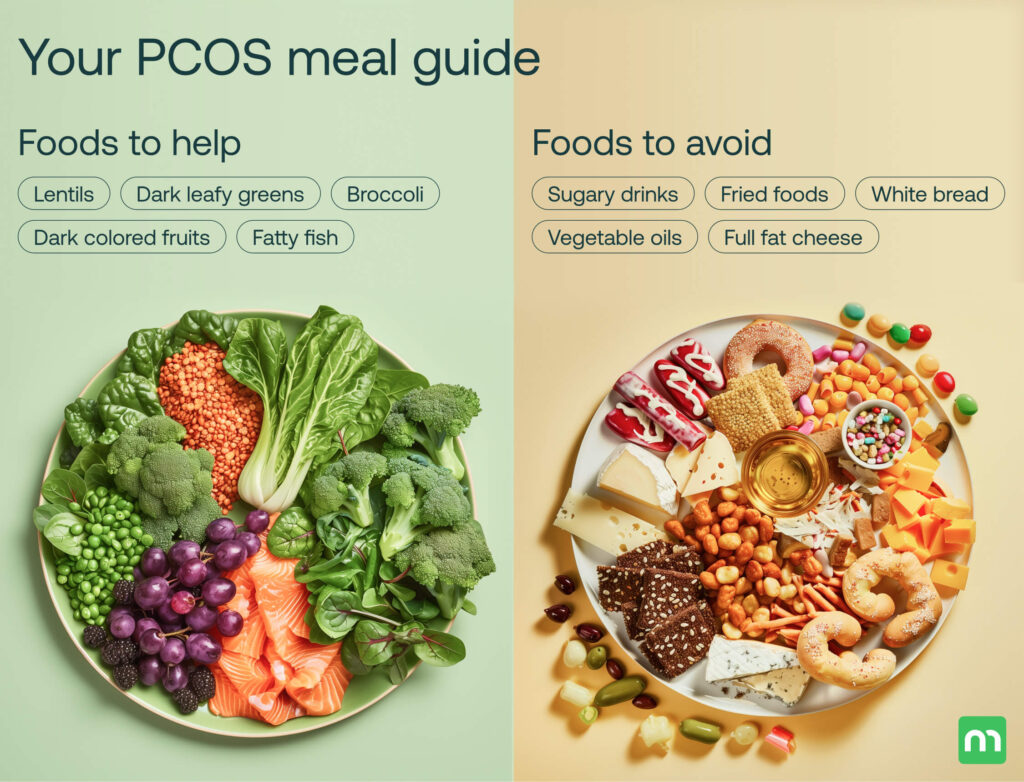PCOS Self-Care Tips

Picture yourself dealing with irregular periods, tiny ovarian cysts, and hormone fluctuations that might make you feel like you’re on an adrenaline roller coaster. It happens more often than you think. Many women experience these symptoms without knowing what they’re caused by.
One common reason for these symptoms is Polycystic ovary syndrome (PCOS). It is an uncomfortable condition that can wreck your hormones during your reproductive years. Here’s why.
Understanding PCOS and the Importance of Self-Care
PCOS is a condition that affects how the ovaries work. They often become large and develop fluid-filled sacs in the ovaries and their surface. It is caused mostly by hormonal imbalance, but it could also be hereditary, meaning it runs in the family.
This hormonal disorder can affect a woman’s ability to conceive due to irregular menstrual cycles and ovulation issues. With PCOS, aside from reproductive issues, many women can develop weight gain, acne, excess hair, and more. These symptoms are just the tip of the iceberg as PCOS can cause type-2 diabetes, endometrial cancer, or heart disease.
It is important to diagnose this condition correctly before you move forward with medication. Even though PCOS can’t be treated fully, there is medication that could alleviate common symptoms and make you feel better. The next crucial step is making lifestyle changes that will suit your body best, meaning nurturing your body, exercising, and going to PCOS therapy.
Sometimes, doctors might prescribe medications that treat period irregularities, acne, excessive hair growth, and other unpleasant symptoms. That’s why it’s important to do lab screening tests for certain biomarkers if someone is worried about unusual symptoms such as irregular cycles, heavy bleeding, etc.
Some tests can be even done at home thanks to Mira’s Panorama Lab Test. It can screen for the anti-mullerian hormone, or AMH, which is the key biomarker for ovarian reserve. Although both sexes excrete AMH, it primarily is for evaluating women’s reproductive health.
The Link Between PCOS and Self-Care
Dealing with PCOS can be, and often is, challenging. These symptoms impact your everyday life, thus, it is necessary to take care of yourself and your well-being.
You can make changes in your habits in several ways:
- Eating a nutrient-rich diet high in fruits and veggies will stabilize your blood sugar levels and reduce overall inflammation. These are the most important factors when it comes to hormonal balance.
- Taking care of your mind and body also positively affects your hormones. Various exercises and techniques can impact your PCOS symptoms. Incorporating them into your daily routine will effectively manage your condition and influence your life.
- Self-care also includes encouraging mental and emotional health via mindfulness exercises, calming methods, and asking for assistance from medical experts or support groups. Those with PCOS diagnoses may improve their general well-being and sense of self-worth, manage the difficulties the disease presents, and place a high priority on self-care.
Practical PCOS Self-Care Strategies

Dietary Adjustments for PCOS
One key way to manage PCOS symptoms is by maintaining a PCOS diet. With proper nutrition, you can seriously regulate hormones and regulate your menstrual cycle. By choosing whole foods, you’re choosing a life without inflammation.
Processed foods like sugars and preservatives can inflame your body and worsen symptoms, that’s why it is crucial to eat fruits, veggies, legumes, and whole grains to better regulate your blood.
Complex carbs and proteins are good for nourishing your body and give energy. Although eating more protein causes the body to produce more insulin, choosing whole, high-carb meals can increase insulin sensitivity without making a low-carb diet necessary. Nuts, legumes, and whole grains are excellent sources of plant-based protein.

Considering that PCOS causes inflammation, it can be beneficial to eat anti-inflammatory foods such as tomatoes, olive oil, fish, and other foods from the Mediterranean diet. It is also good to increase iron intake through eggs, spinach, and broccoli.
On the other hand, it would be good to avoid excessive coffee consumption as coffee can have negative stimulating effects which can exacerbate symptoms. You can switch it with matcha, green tea, or kombucha. Even black tea is okay. These drinks will give you the health benefits that you need while also giving you a touch of energy that you like.
Supplements
Even though you can’t get rid of PCOS permanently, you can always lessen the symptoms by changing your diet, getting exercise, and getting proper supplements. However, there isn’t one definite treatment for everyone.
Before you try any supplements, it is wise to consult with a doctor beforehand. This way, you’ll get a better insight into the dosage, medication interactions, and side effects.
However, universally, one popular supplement, beneficial for treating PCOS, is Inositol. Since insulin sensitivity is usually low in PCOS patients, this specific kind of sugar may aid improve insulin signaling. In addition, inositol may support menstrual cycle regulation, testosterone reduction, and ovulatory function. It has been clinically demonstrated to support ovarian function and hormonal balance.
Inositol may boost the chance of conception and result in more regular ovulation because it promotes insulin sensitivity and menstrual cycle regulation.
More supplements are available to fight PCOS symptoms efficiently but it could be quite overwhelming to understand what you want. Mira’s PCOS supplements, with their ideal formula of Myo & D-r Chiro Inositol 40:1, are created to nourish your body’s natural rhythm with expertly blended ingredients, carefully designed to support your journey with PCOS. Each ingredient contributes to hormonal balance and metabolic health, aiming to offer a nurturing boost to your daily routine.
Exercise and Physical Activity
Engaging in physical activity can significantly improve the management of PCOS-related metabolic and reproductive problems. Frequent exercise is a great strategy to regulate glucose metabolism and even stabilize irregular periods brought on by PCOS. It’s not just about working up a sweat.
Exercise should be approached with a slow, weighted mindset! For PCOS fighters, bodyweight workouts, yoga, and pilates are like hidden weapons. They improve your insulin sensitivity and hormone levels, but they also have a profound effect on your metabolic profile. Not only that, but these workouts work like magic to reduce cortisol, the hormone that causes stress. Maintaining healthy cortisol levels will make you feel more comfortable and content.
Stress Management and Mental Health
Although managing PCOS might seem like a lot sometimes, one magic trick can make it slightly more tolerable. You can use meditation as a covert tactic to maintain your composure. It acts as a comforting salve for tension, worry, and even depressing times. And notice this: the benefits go beyond improved mental health.
The wonderful knock-on effect of meditation can also assist with other symptoms of PCOS. Consider enhanced insulin resistance and hormone balance. How about trying it out? It can significantly improve both your physical and mental health to incorporate a small amount of meditation into your daily practice. Your body and mind will appreciate it.
Additional Self-Care Considerations
Sleep and Rest
Inadequate sleep is a serious issue that merits discussion! Unfortunately, sleep disturbances are sometimes associated with PCOS. Our hormones play a major part in controlling our sleep cycles, thus it comes as no surprise that PCOS can negatively impact hormone levels.
Having PCOS can make it difficult to obtain a decent night’s sleep, from bothersome conditions like sleep apnea to battling various types of sleeplessness. PCOS often causes low levels of progesterone and testosterone in the body. Weak progesterone can cause disruptions to our sleep patterns, particularly in females. The worst part is that little sleep can cause problems like insulin resistance and obesity. This is because insomnia may generate stress, which in turn can cause blood glucose levels to fluctuate.
Regular Health Check-Ups
To properly monitor their condition, people with PCOS must have regular checkups. Working with medical specialists who specialize in PCOS guarantees all-encompassing care customized to each patient’s need. These examinations make it possible to identify any changes or issues related to PCOS on time, which supports early intervention and treatment techniques.
To track hormone levels, menstrual cycles, and metabolic indicators including insulin resistance and lipid profiles, healthcare practitioners can do routine exams.
Frequent check-ups also give medical experts the chance to advise patients on appropriate medication, lifestyle modifications, and dietary changes to enhance symptom management and lower the risk of long-term problems.
For PCOS patients to receive the greatest benefit from their therapy and meet their health goals, a supportive environment that builds solid working relationships with healthcare professionals is essential.
Community and Support
It can be hard to deal with PCOS all by yourself. But, fortunately, you don’t have to! People who engage with PCOS forums and support groups feel better understood and like they belong. These communities allow people a place to share their stories, offer and receive advice, and seek support from others going through comparable difficulties.
At Mira’s Hormone Health Clinic for Fertility, you can learn everything about the disorder and its influence on your hormones. Hormone Health Coaches specialized in PCOS can help with managing techniques, mental health support, effective dosage of PCOS supplements, as well as preparing a plan (if this is your goal) to get pregnant naturally and faster.

A little extra support from an expert can go a long way
Book an online consultation with one of our Hormone Health Coaches.
Schedule NowGaining knowledge about PCOS also gives you a greater self-power. Reputable websites, internet databases, and medical experts’ teaching materials are good sources of information.
People with PCOS become stronger, more resilient, and more upbeat by seeking help when needed. Women who work together feel more confident and resolute in overcoming the obstacles caused by PCOS.
Conclusion
It is reasonable that concerns about possible treatments and long-term effects would arise after finding out about PCOS. Many women worry that they might never be able to stop using oral contraceptives or that they could eventually struggle to manage their weight and become pregnant. The problems may seem endless, the consequences – terrifying, but nobody has to deal with them alone. You can start small with some little dietary changes or supplements and gradually move towards having control over your own body. PCOS isn’t an easy condition but today it’s getting easier and easier to combat it successfully.
Frequently Asked Questions
What are the first steps in PCOS self-care?
The first steps in PCOS self-care include a balanced diet and regular exercise to manage symptoms including insulin resistance and weight fluctuations. Furthermore, PCOS sufferers’ overall health may be further enhanced by prioritizing stress management techniques and seeking medical assistance from professionals.
Can diet changes significantly improve PCOS symptoms?
By adjusting your diet, you can indeed significantly improve and minimize symptoms associated with PCOS. You can do this by implementing a well-balanced diet that emphasizes whole foods, is low in processed carbohydrates and sweets, and is rich in protein and healthy fats.
How does exercise affect PCOS, and what types are best?
With aerobic exercise, you can control insulin sensitivity, and bodyweight exercise balances your hormones. It is quite beneficial to regularly ride a bike, have a walk, and do some yoga.
Why is stress management important in PCOS treatment?
In addition to addressing PCOS symptoms including insulin resistance and hormone abnormalities, stress management is essential for enhancing general health outcomes.
How can one get started with mindful eating?The simplest method to start eating mindfully is to eat more slowly and pay attention to your body’s hunger cues. By eating rationally and eating when you’re hungry, you can teach yourself how to eat intuitively.
Mira’s Editorial Process
All content produced by Mira meets stringent editorial standards, ensuring excellence and accuracy in language and medical precision. Every piece undergoes thorough fact-checking and review by qualified professionals. Check out our full editorial process to learn more.











